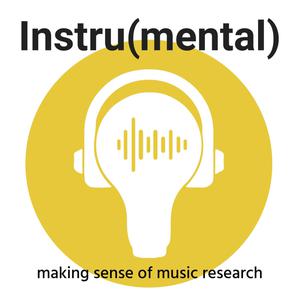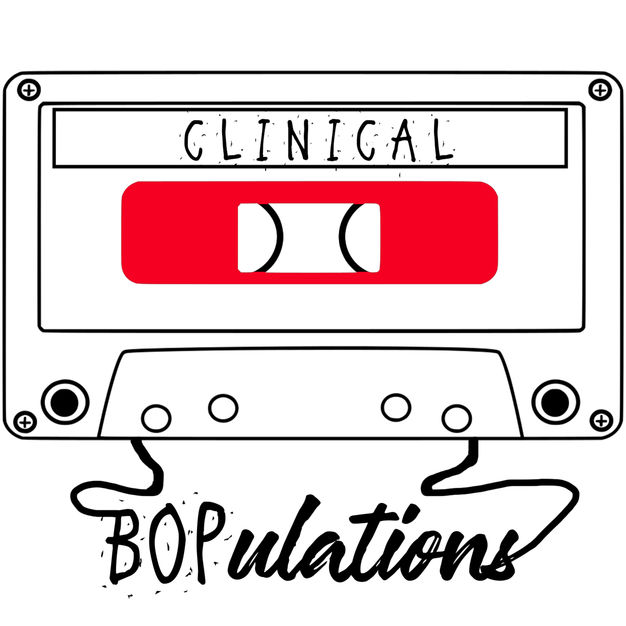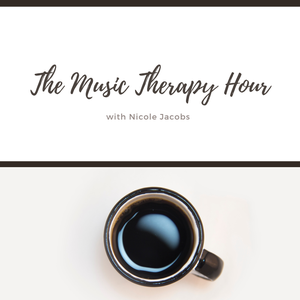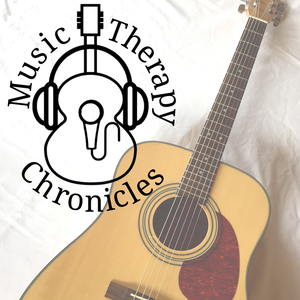
Instru(mental) with Brea Murakami
Brea Murakami
How and why does music impact human behavior? Each episode we dive into music psychology and music science research from a music therapist's perspective. Come away with practical tips for how you can apply what you learn about music into your everyday life.Find more information on the research articles and music included in each episode at our website, www.InstrumentalPodcast.com. Follow us on Twitter (@instrumentalpod) and Facebook for the latest news and updates!
- 17 minutes 42 secondsMusic as a Social Surrogate
How can music serve as a social surrogate when we can't directly interact with others? This episode explores how listening to music can serve as a social proxy and provides ideas for how to strengthen your social relationships in the age of social distancing.
For more information about the research, resources, and music in this episode, go to www.InstrumentalPodcast.com. Follow us on Facebook or Twitter for news and updates!17 July 2020, 5:00 am - 36 minutes 27 secondsBridging Music Therapy/Cognition [Interview with Daniel Goldschmidt]
How can the fields of music therapy and music cognition strengthen each other? This episode features a conversation with music therapist Daniel Goldschmidt (@danielnnz) on a wide range of topics about bridging these two disciplines including:
- What it's like to going to music therapy vs. music cognition conferences
- How Daniel applies music cognition research to his professional practice
- Where music therapy/cognition can easily intersect
- Why music therapists need to seek expertise beyond their bubble
Find more information on the research articles and music included in each episode at our website, www.InstrumentalPodcast.com. Follow us on Twitter or Facebook (@instrumentalpod) for the latest news and updates!
Cool people mentioned in this podcast:
Jessica Grahn, PhD
David Huron, PhD
Blythe LaGasse, PhD, MT-BC
Hakeem Leonard, PhD, MT-BC
Marisol Norris, PhD Candidate, MT-BC
Jessica Riley, MM, MT-BC
Natasha Thomas, PhD, MT-BC
Laural Trainor, PhD, MT-BC
Lindsay Warrenburg, PhD10 January 2020, 6:00 am - 49 minutes 39 secondsDrumming and Prosody [Interview with Jessica Riley]
This episode features an interview with Jessica Riley, a soon-to-be music therapist who started her career in music neuroscience. We talk about how Jessica first got involved in music science research and how she’s applied her research skills to help children with cochlear implants better hear prosody. In this episode you’ll learn more about what music may sound like for cochlear implant users, a drumming-to-speech paradigm Jessica designed to help with prosody recognition, and the importance of prosody in our everyday communication.
Find more information on the research articles and music included in each episode at our website, www.InstrumentalPodcast.com. Follow us on Twitter or Facebook (@instrumentalpod) for the latest news and updates!
Mentioned Resources:Video: Willy Wonka with Drums
Jessica Riley’s Thesis Research Poster: HERE
Follow Jessica on Twitter: https://twitter.com/urbanfiddle
16 August 2019, 8:00 am - 18 minutes 34 secondsHuman Hearing
How do our ears and brains take in and process sound? This episode covers the basics of how we hear starting with sound wave all the way to the primary auditory cortex. Learn how music therapists work with individuals who are hard of hearing and how to protect your own hearing.
For more information about the research, resources, and music in this episode, go to www.InstrumentalPodcast.com. Follow us on Facebook or Twitter for news and updates!26 July 2019, 8:00 am - 17 minutes 49 secondsMelody vs. Lyrics and Emotional Intensity
How can individual musical elements impact our music listening experiences? This episode is a quick dive into how melody and lyrics in a song impact the emotional intensity of music. Learn how you can make more strategic music choices by becoming mindful of musical elements’ influence in how you perceive music.
For more information on the research articles and music in this episode, go to www.InstrumentalPodcast.com. Follow us on Facebook or Twitter with @instrumentalpod for news and updates!12 July 2019, 4:00 pm - 30 minutes 51 secondsMusic-Evoked Autobiographical Memories
How do certain songs become intertwined with our personal memories? This episode explores the musical reminiscence bump, how our musical preferences may be influenced by our parents, and the neurologic mechanisms behind music-evoked autobiographical memories. Get ideas for how to use music to frame and reflect on your past experiences.
For more information on the research articles and music in this episode, go to www.InstrumentalPodcast.com. Follow us on Twitter (@instrumentalpod) for news and updates!
5 July 2019, 8:00 am - 30 minutes 37 secondsMusic, Rewards, and Dopamine
Does music release dopamine? And how can music be interpreted as a reward? This episode uncovers how reward circuitry in our brain can be activated when we listen to music. Learn how the interactions between music and dopamine contribute to neuroplasticity and how music therapists take advantage of musical rewards for increased motivation.
For more information on the research articles and music in this episode, go to www.InstrumentalPodcast.com. Follow us on Twitter (@instrumentalpod) for news and updates!
10 August 2018, 7:00 am - 30 minutes 59 secondsCongenital Amusia
Why are some people tone deaf? This episode explores a musical disorder called congenital amusia, in which people have trouble processing the pitch and melodic structures of music. Learn the neurologic disconnect in amusic brains, what amusia can tell us about humans' musical foundations, whether people with amusia can still enjoy music, and how to find out if you may have amusia yourself.
For more information on the research articles and music in this episode, go to www.InstrumentalPodcast.com. Follow us on Twitter (@instrumentalpod) for news and updates!
2 August 2018, 7:00 am - 33 minutes 12 secondsMusic and Dying
How does music help us deal with death? This episode covers research that gives us insights into how music can lessen death anxiety and then discusses three ways that music is used in hospice care to support individuals at the end of life. Takeaways include resources like the Five Wishes document and ideas for how to start important conversations with your loved ones about death.
For more information on the research articles and music in this episode, go to www.InstrumentalPodcast.com. Follow us on Twitter (@instrumentalpod) for news and updates!
12 July 2018, 7:00 am - 29 minutes 39 secondsPersonality and Music Preference
Do our musical tastes reflect our personalities? This episode dives into research about how the Big Five personality factors might influence what music we like. Along the way, learn what you may able to know about a person after hearing their favorite music and how to use that knowledge to build more genuine connections with strangers and people you've known your whole life.
For more information on the research articles and music in this episode, go to www.InstrumentalPodcast.com. Follow us on Twitter (@instrumentalpod) for news and updates!
6 July 2018, 7:00 am - 12 minutes 19 secondsMusic and Shopping Behavior
Can music impact how we shop? This mini-episode explores how music can unconsciously influence our decisions of what to buy and how much money we spend in retail settings. Get the highlights of how music can impact our associations with products, change how we perceive time, and how to use music for a comfortable shared environment.
For more information on the research articles and music in this episode, go to www.InstrumentalPodcast.com. Follow us on Twitter (@instrumentalpod) for news and updates!
29 June 2018, 7:00 am - More Episodes? Get the App
Your feedback is valuable to us. Should you encounter any bugs, glitches, lack of functionality or other problems, please email us on [email protected] or join Moon.FM Telegram Group where you can talk directly to the dev team who are happy to answer any queries.
 The Travelling Music Therapist
The Travelling Music Therapist
 Music Therapy Conversations
Music Therapy Conversations
 Clinical BOPulations
Clinical BOPulations
 The Music Therapy Hour
The Music Therapy Hour
 Music Therapy Chronicles
Music Therapy Chronicles